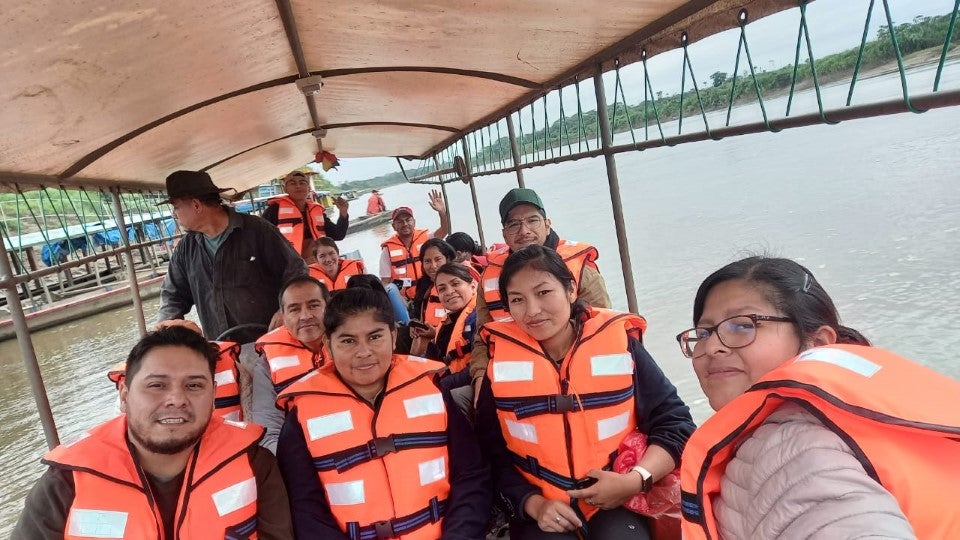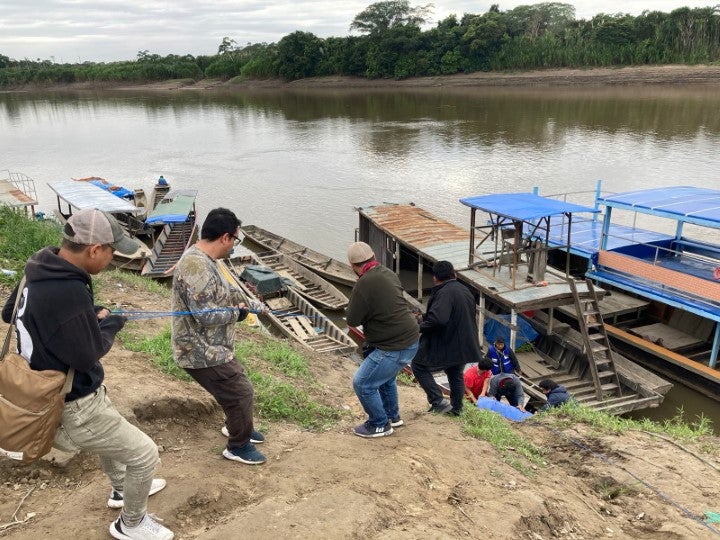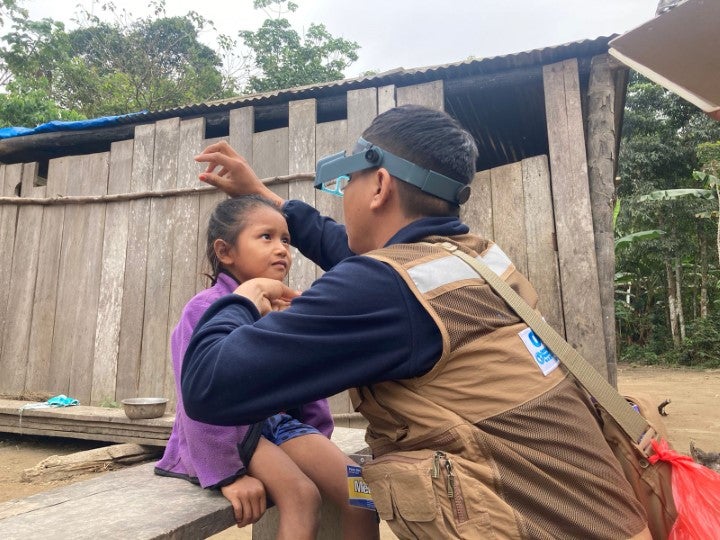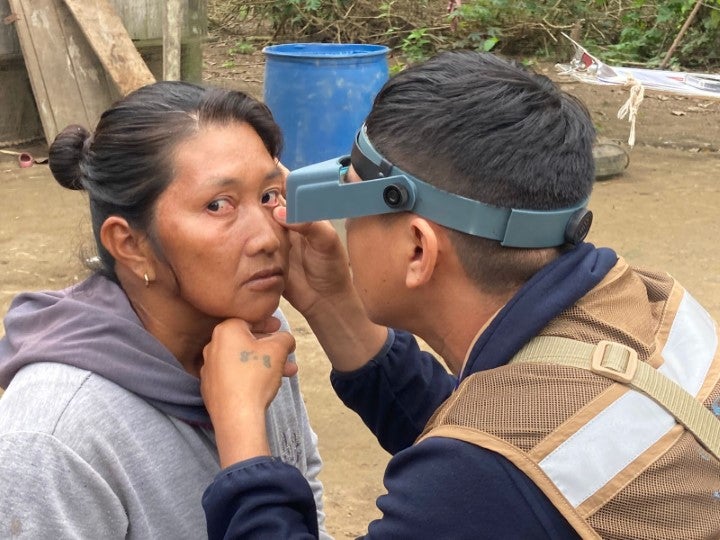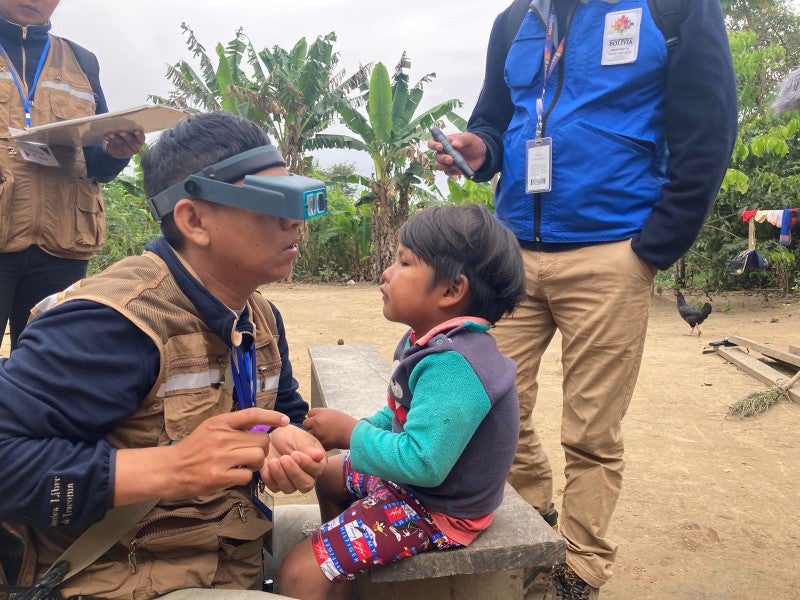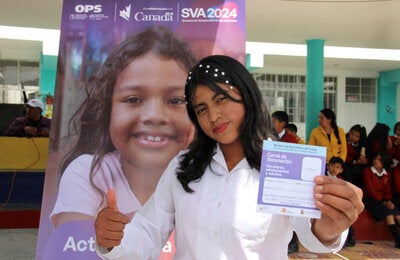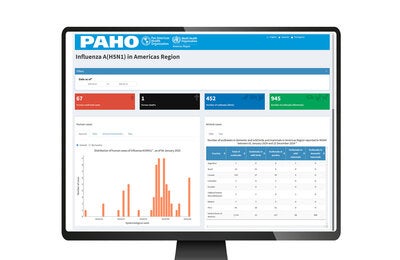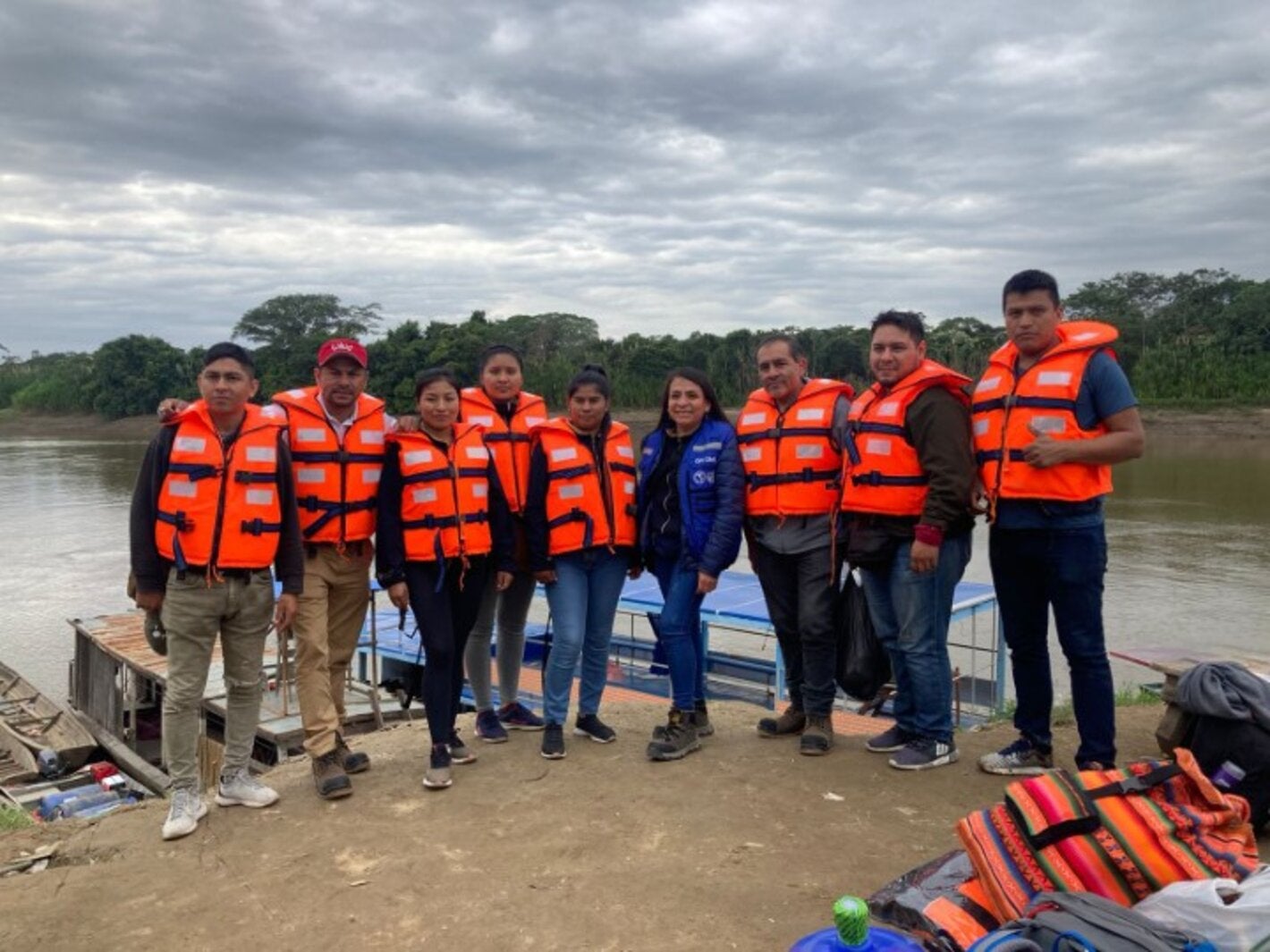
Puerto Flores, Cochabamba – Bolivia, July 3, 2024 (PAHO) – A team conducting Rapid Trachoma Assessments (RTAs) ventured into the indigenous communities ofthe Cochabamba tropics, joined by Ministry of Health personnel, embarking on a challenging 12-day mission to identify cases of trachoma, the world’s leading cause of infectious blindness.
The RTA team undertook the first of two missions to the Indigenous Health Network in the tropics. This initial mission will focus on prioritized communities in the Ichilo - Chapare river area: Puerto Las Flores, Tres Bocas, La Boca del Chapare, and Remanzo. A second trip will take place from July 20 to 30 in the Chimoré – Tipnis area, in the Carrasco province of Cochabamba, where the team will visit the communities of Buen Pastor, San Jose de Angosta, and Bia Recuate.
As part of the initiative for the "Elimination of Trachoma as a Public Health Problem in the Americas," plans are underway to conduct Rapid Trachoma Assessments in three areas of Bolivia’s Amazon Basin, as well as the Chaco, in coordination with the Ministry of Health, indigenous authorities, and the Pan American Health Organization/World Health Organization (PAHO/WHO).
The project in Bolivia began on March 6 with the first RTA in the Cordillera Health Network within the Guaraní territory, located in the Santa Cruz department. Future RTAs are planned for other prioritized health networks: the Gonzalo Moreno Network in Pando and the Abel Iturralde Network in northern La Paz.
The implementation of the RTAs involves identifying health networks where vulnerable indigenous communities live under adverse conditions. The assessments are conducted by a trained team with support from regional actors, health personnel, and indigenous authorities. The missions also aim to strengthen medical care in these communities by providing specialists and program personnel from the Ministry of Health.
RTAs involve conducting house-to-house visits to examine all family members in prioritized communities. The goal is to identify active trachoma cases in children aged 1 to 9 and trachomatous trichiasis (TT) cases in individuals aged 15 and older.
Trachoma is transmitted through direct contact with ocular or nasal secretions from infected individuals or through contact with fomites (such as hard surfaces or clothing).
Trachoma is caused by the bacterium Chlamydia trachomatis and remains endemic in certain rural areas of Central America, South America, and Africa. It is recognized as a public health problem in Brazil, Colombia, Guatemala, and Peru. In Bolivia, the at-risk population is estimated at 210,000.
Repeated episodes of infection over a lifetime can lead to scarring of the inner surface of the eyelid, which in some cases results in trachomatous trichiasis, where one or more eyelashes from the upper eyelid scratch the eye. Constant rubbing can lead to visual impairment and blindness.
The team working in the Indigenous Health Network includes professionals from the Ministry of Health and Sports’ Eye Health division: Drs. Estanislao Titirico, Ángel Sinuiri, and Marco Mareño. They are joined by the coordinator of the Indigenous Health Network, Keila Ávila Vásquez, and the head of Bono Juana Azurduy from the Ministry of Health. Local authorities include Cochabamba departmental assembly member Damaris Orihuela, the Chief of the Indigenous Council of the Rio Ichilo (CIRI), and the CIRI Health Secretary Ever Antezana, and Daniel Javivi, respectively. The president of the Coordinadora de Pueblos Indígenas del Trópico de Cochabamba (CPITCO), David Quiroga Aponte, is also involved.
PAHO/WHO's national consultant Ely Linares is actively participating in the project, and the RTA team includes Juanito Noza (Trinitario), Rosandra Noza (Yuracaré), Clementia Guatia (Trinitario), Berthi Sandoval (Guarayo), Reinelda Cuellar (Guarani), Emilia Bartolo (Guarani), and Alan Guzmán (Yacuiba). The team was trained and selected for their field experience, deep understanding of indigenous communities' realities, and proficiency in native languages to ensure effective performance in the field.
Training covered identifying trachoma forms in vulnerable populations, using magnifying glasses, and handling of Tropical Data, a tool suitable for data collection in the field. The training was conducted by Dr. Sandra Talero, Technical Officer of Neglected Infectious Diseases at PAHO and Dr. Diana Gómez, both PAHO’s experts in trachoma evaluation in the region.
PAHO highlights that eliminating trachoma from the Americas is feasible with sufficient collaboration, coordination, work, and funding to support countries' efforts. Proven, evidence-based methodologies and tools are available to accelerate the work and alleviate the suffering of affected populations, with actions tailored to be gender-sensitive and culturally appropriate.
For this project, PAHO and Canada's Global Affairs Department (GAC) have partnered to implement an initiative to improve the health of communities, women, and children by eliminating trachoma as a public health problem in the Americas. This initiative is set to run from 2023 to 2027.

